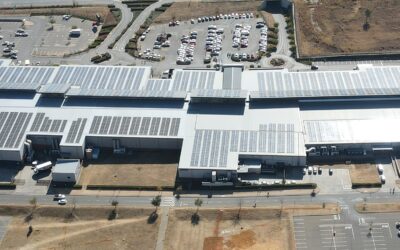Eskom has recently stated that it will avoid load shedding until at least July of this year. However, there is still fear that regular power cuts will once again be a reality for businesses in the near future. With many industries having been subjected to significant financial strain by the nationwide COVID-19 lockdown, organisations are considerably more vulnerable to the devastating impact that something like load shedding would have on their balance sheets.
This is according to Manie de Waal, CEO of Energy Partners Solar, who says that drastically reducing the energy costs of a business – by means of outsourced renewable energy contracts – will significantly improve its resilience against the negative impact of future load shedding. “While it is still prohibitively expensive for most businesses to go off-grid entirely, making sure that they pay less for their overall energy consumption will go a long way towards bolstering their balance sheet – thereby reducing the financial impact of load shedding in the long-term.”
De Waal explains that small-scale renewable energy generation can lead to a 30% reduction in a company’s energy costs, if it is owned, operated and maintained by a dedicated service provider on a power purchase agreement (PPA) basis. “Even more importantly, the business does not need to invest any upfront capital in installations; it just starts saving money as soon as the site starts generating power. The service provider acts as the owner of the generation plant and sells the power produced at a predetermined tariff (called the PP-rate) that is significantly lower than grid rates.”
He adds that, over the coming months and years, companies’ cash flows are going to be under severe pressure. “Keeping the cost of a massive installation, such as a power generation plant, off-balance sheet is therefore going to become as important as continued savings. Businesses are going to be much better served by using the money that they save on energy costs, to pay salaries and hedge against the loss of profits resulting from load shedding.”
With this in mind, De Waal states that businesses returning to work after lockdown should strongly consider outsourced alternative energy generation as a means to secure their cash flow. “This is a decision that business owners will need to make sooner, rather than later. Companies are needing to recover as much profit, as quickly as they can, and outsourcing their energy requirements can help them to do this,” he concludes.




